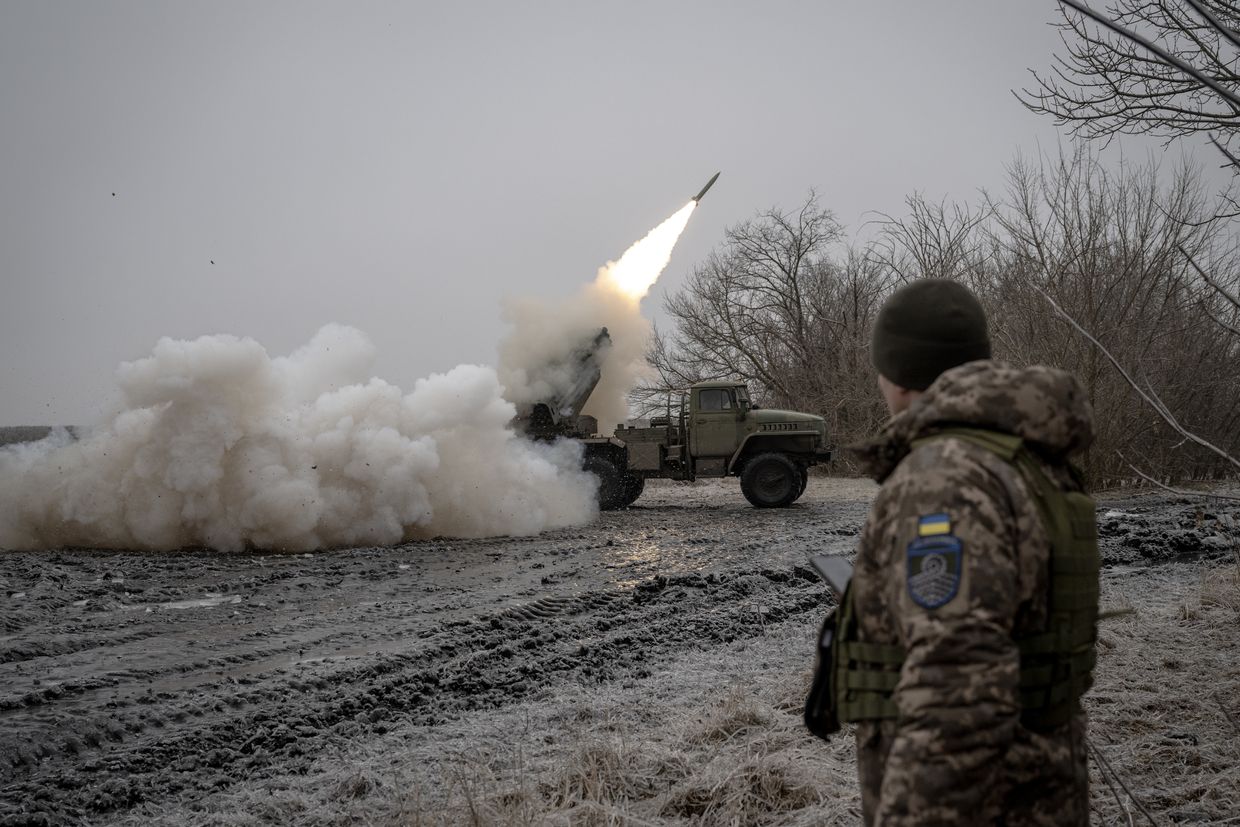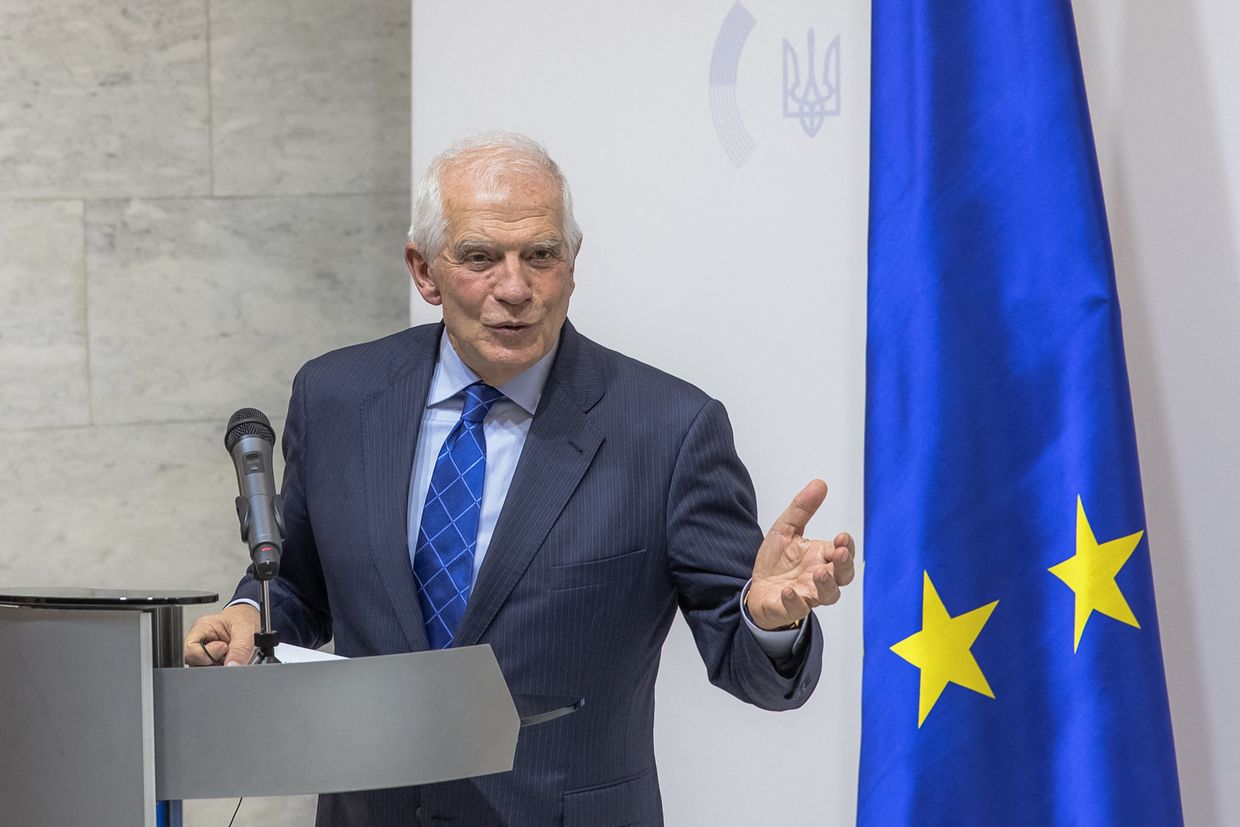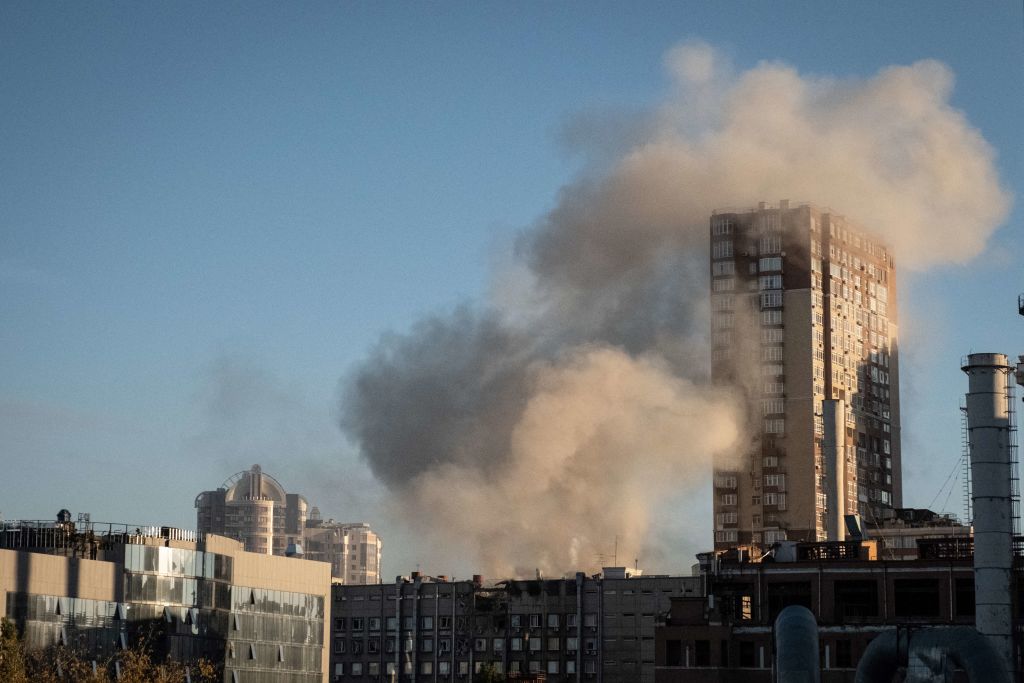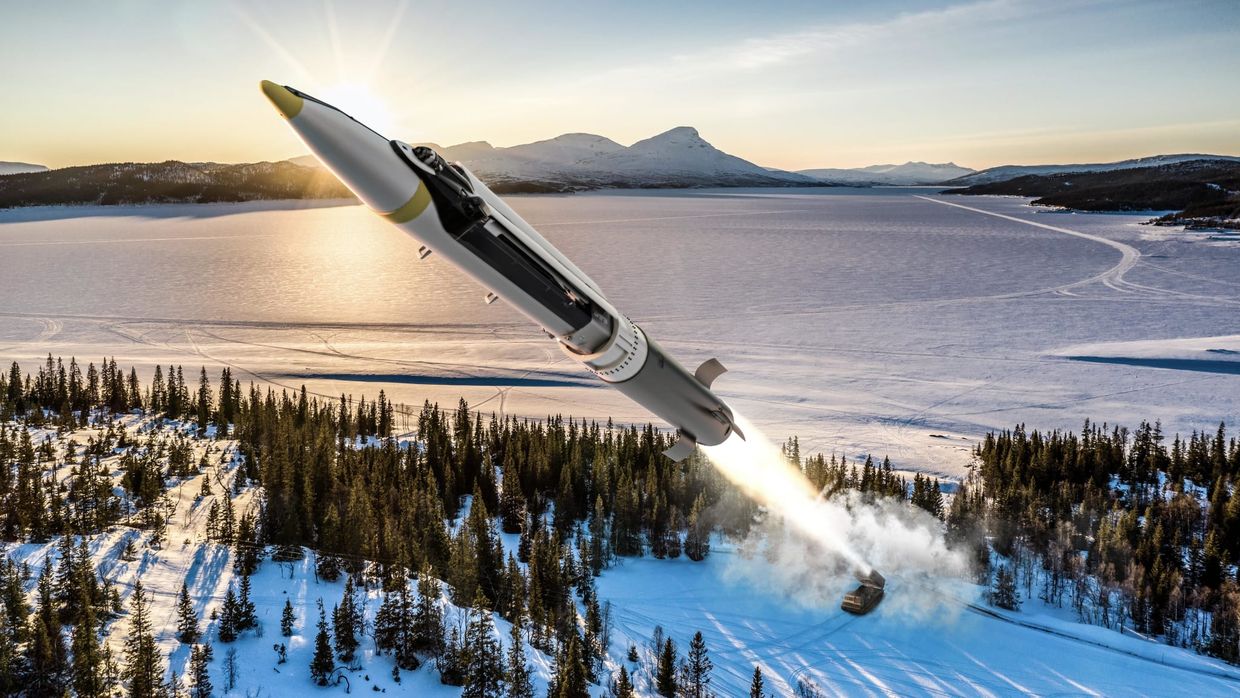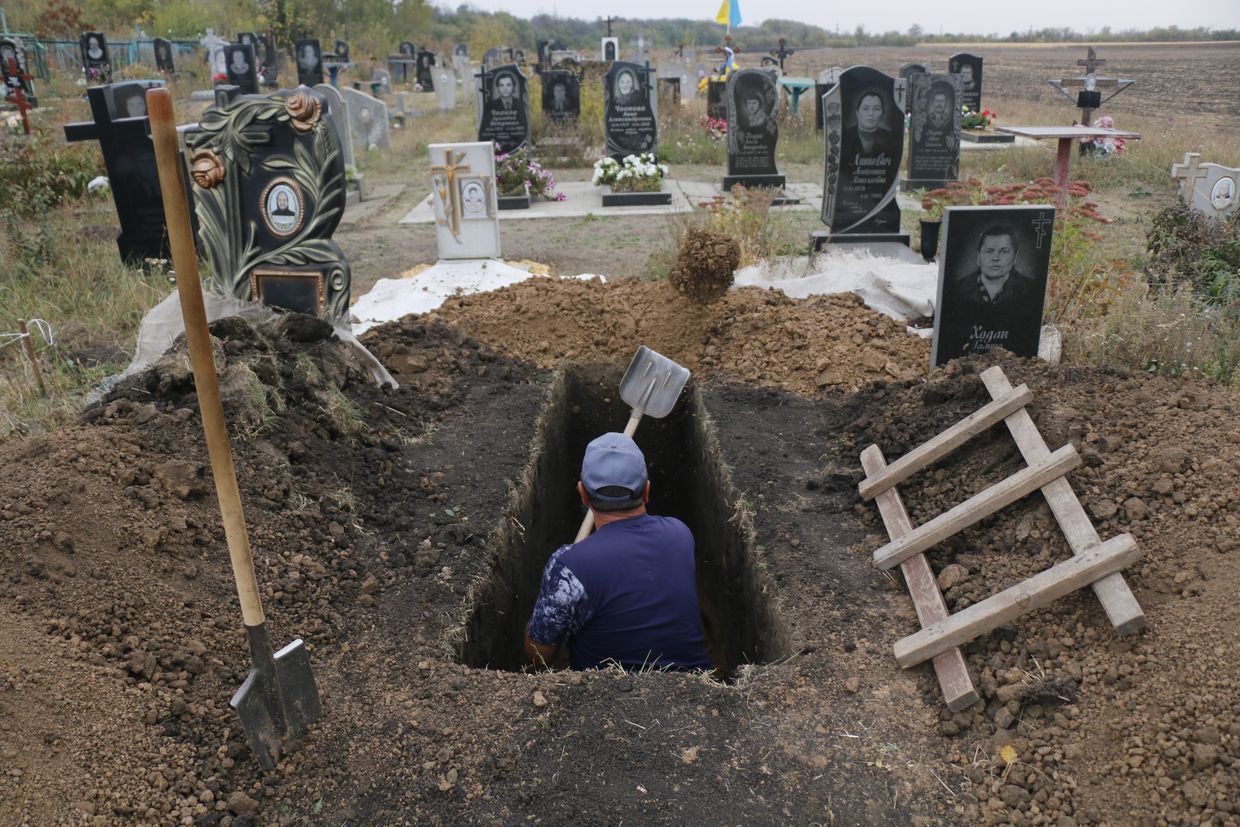Ukraine war latest: Russia stops using 'human wave' attacks in Avdiivka, deploys small assault groups instead, commander says

Key developments on Feb. 12:
- Russia stops using 'human wave' attacks in Avdiivka, instead deploys small assault groups, says commander
- IMF delegation, vice-president of German parliament arrive in Kyiv
- Military intelligence says Iran and Hezbollah train Russian drone operators in Syria
- Minister: Ukraine will produce thousands of long-range drones in 2024
- Former police officer charged for allegedly directing Russian missile strike on Hroza.
To probe Ukrainian defenses in Donetsk Oblast's Avdiivka, Russia has stopped using its infamous "human wave" attacks, instead deploying small assault groups supported by aviation, says Dmytro Riumshyn, the commander of Ukraine's 47th Separate Mechanized Brigade.
Lying only kilometers away from Russian-occupied Donetsk, Avdiivka has suffered intensified Russian attacks since October 2023 as Moscow's troops aim to encircle the city.
Russian forces used the "human wave" tactics since the beginning of the Adviivka offensive, which the White House described as throwing "masses of poorly trained soldiers right into the battlefield without proper equipment, and apparently without proper training and preparation."
Now, however, Russia does not have sufficient troops around Avdiivka to conduct such attacks regularly, according to Riumshyn.
It deploys regular troops, sabotage groups, as well as "Storm-Z" and "Storm-V" units formed of convicts to Avdiivka, Riumshyn said.
"As long as Ukraine has enough personnel and weapons, the enemy can not encircle Avdiivka," the commander said on national television on Feb. 12.
The General Staff of Ukraine's Armed Forces reported on Feb. 12 that Ukrainian forces repelled 23 Russian attacks against Avdiivka over the past day.
Western officials arrive in Kyiv
A delegation of the International Monetary Fund (IMF) and Katrin Goring-Eckhardt, the vice president of the Bundestag, Germany's parliament, arrived in Kyiv on Feb. 12.
During her week-long visit to Ukraine, Goring-Eckhardt plans to discuss a number of priorities, including the thousands of Ukrainian children illegally abducted by Russia.
"On the way to Ukraine. Again. It's a crucial time for Ukraine and for the EU. It is about military support, reconstruction, freedom," she wrote on Twitter. "During my visit, I would also like to focus on the children who have been abducted and taken hostage in Russia."
Since February 2022, over 19,500 Ukrainian children have been identified as abducted from Russian-occupied territories and sent to Russia, Belarus, or other Russian-controlled areas of Ukraine, according to a Ukrainian national database on child abductees. Only 388 of them have been able to return home.
The IMF delegation — led by Uma Ramakrishnan, the deputy director of the IMF European Department — came to Ukraine for talks with local authorities and other stakeholders on strengthening Ukraine's financial capabilities.
The team will participate in the inaugural meeting of the Steering Committee of the IMF's Ukraine Capacity Development Fund (UCDF) on Feb. 13.
The meeting will gather Ukrainian authorities, development partners, and IMF staff to discuss Ukraine's capacity development priorities and IMF support in this area, Vahram Stepanyan, the fund's resident representative to Ukraine, said in a statement on Feb. 12.
Military intelligence: Iran, Hezbollah train Russian drone operators in Syria
On Feb. 12, the Ukrainian military intelligence agency (HUR) said that Iran and Hezbollah are training Russian drone operators in Syria for deployment in Ukraine.
The Iranian Revolutionary Guard and the Tehran-backed militant group based in Lebanon are reportedly carrying out the instruction at the Shayrat Airbase. Russia, Iran, and Bashar al-Assad's regime in Syria have been cooperating extensively on both military and political levels, presenting a challenge to both Ukraine and the West.
The intelligence agency also said the training course includes mastering systems like Shahed-136 "kamikaze" drones or Ababil-3 drones, which can be used for both reconnaissance and combat purposes.
Russia has been extensively importing Iranian Shahed drones and making domestic copies for attacks against Ukrainian cities and infrastructure.
According to the intelligence agency, the instruction is headed by a Hezbollah commander, Kamal Abu Sadiq, who specializes in the manufacture and maintenance of drones.
The training is also allegedly provided not only to Russian personnel but also to Syrian mercenaries whom Moscow supposedly plans to deploy in Ukraine as drone operators.
Both Moscow and Damascus also maintain close ties with Tehran, which not only supplies arms to Russia but also backs militant groups in Lebanon, Syria, Iraq, and Yemen. This led to a number of clashes recently between Iranian-supported militants and Western powers.
Minister says Ukraine will produce thousands of long-range drones in 2024
In an interview with Reuters published on Feb. 12, Digital Transformation Minister Mykhailo Fedorov said Ukraine plans to produce thousands of long-range attack drones capable of hitting targets deep in Russia in 2024.
Ukraine has intensified its efforts to ramp up domestic production of attack drones, a critical tool on the battlefield, aiming to manufacture 1 million drones this year.
In January, multiple drone strikes have been reported on oil depots and refineries in Russia, including Bryansk, Oryol, and Leningrad oblasts.
Ukraine often does not publicly comment on strikes within Russia, but Fedorov told Reuters that the spate of strikes on oil facilities "reflected the government's progress in rapidly deregulating the drone market and increasing funding for it."
Fedorov said that up to 10 companies are involved in producing long-range attack drones.
"The category of long-range kamikaze drones is growing, with a range of 300, 500, 700, and 1,000 kilometers. Two years ago, this category did not exist ... at all," Fedorov said.
Former police officer charged for allegedly directing Russian missile strike on Hroza
A former Ukrainian police officer has been charged with treason in absentia for his alleged role in helping direct a Russian missile strike on the Kharkiv Oblast village of Hroza that killed 59 people in October 2023, the Prosecutor General's Office announced on Feb. 12.
The attack took place during a memorial service in Hroza, which is located around 90 kilometers east of the city of Kharkiv.
It killed more than half of the village's population, becoming the deadliest attack against Ukrainian civilians in 2023.
Following the strike, the Security Service of Ukraine (SBU) identified two brothers, both locals from Kharkiv Oblast, who allegedly helped direct the strike on Hroza.
Even though the prosecutor's office did not publish the suspect's name in its Feb. 12 announcement, Ukrainska Pravda and other media outlets wrote that it was Dmytro Mamon, one of the two brothers identified by the SBU in October.
According to the SBU, Dmytro and his brother Volodymyr collaborated with occupying Russian forces and later fled to Russia after Ukraine liberated the region in late 2022.
The SBU wrote in October that the brothers cultivated a network of local informants and collaborators from Russia and used these contacts to identify Ukrainian troop movements or gatherings, which they reported back to their Russian handlers.



